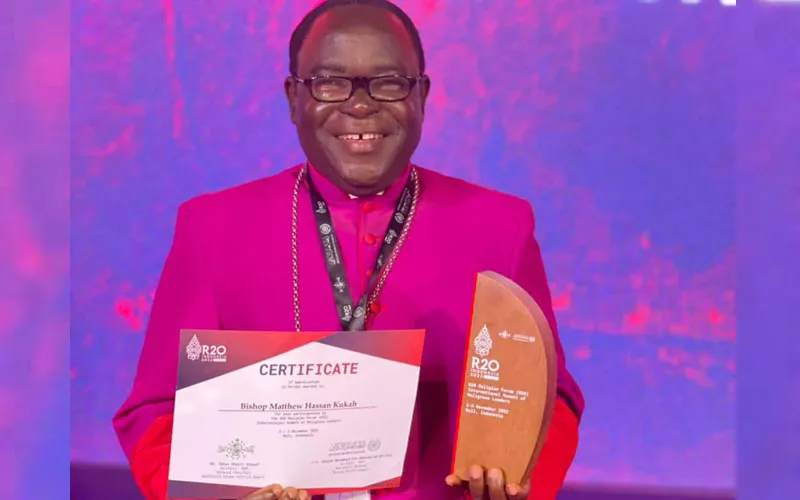Sokoto, 04 November, 2022 / 9:51 pm (ACI Africa).
There is need for governments, including those in Africa, to have in place a “culture of a strong legal basis” to address the challenge of religious extremism, a Catholic Bishop in Nigeria has said.
Bishop Matthew Hassan Kukah who was addressing the G20 Religion Forum in Bali, Indonesia on Thursday, November 3 in prelude to the Group of 20’s meeting later this month emphasized the need to put an end to crimes “in the name of faith”.
“Governments must develop the culture of a strong legal basis for common citizenship with the Constitution as the supreme law of the land,” Bishop Kukah said in his presentation titled, “The Weaponization of Religious Identity in Contemporary West Africa”.
The Nigerian Catholic Bishop added, “Innocent citizens cannot lose their lives due to cultural or religious claims that are contrary to the laws of natural justice, or subjected with impunity to spurious religious claims when we are not in a theocracy. “
“As we see in Nigeria and elsewhere, no citizen should have the right to take the life of another or cause injury on grounds of any sort of divine claim,” the Local Ordinary of Nigeria’s Sokoto Diocese further said, and added, “Decisive punishments must be meted out to those who kill in the name of faith.”








